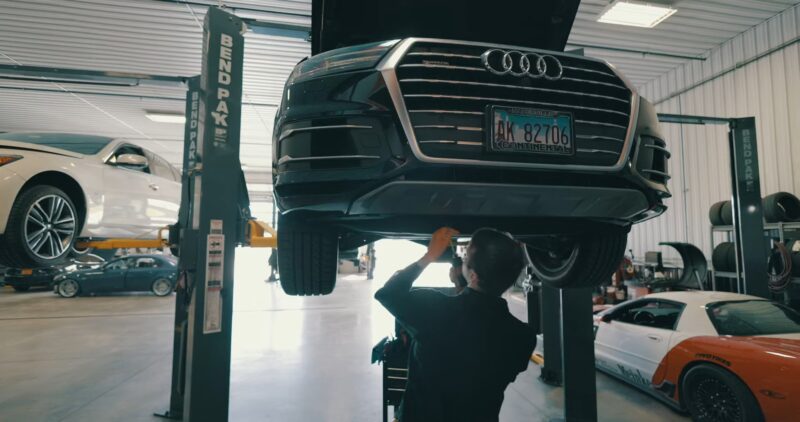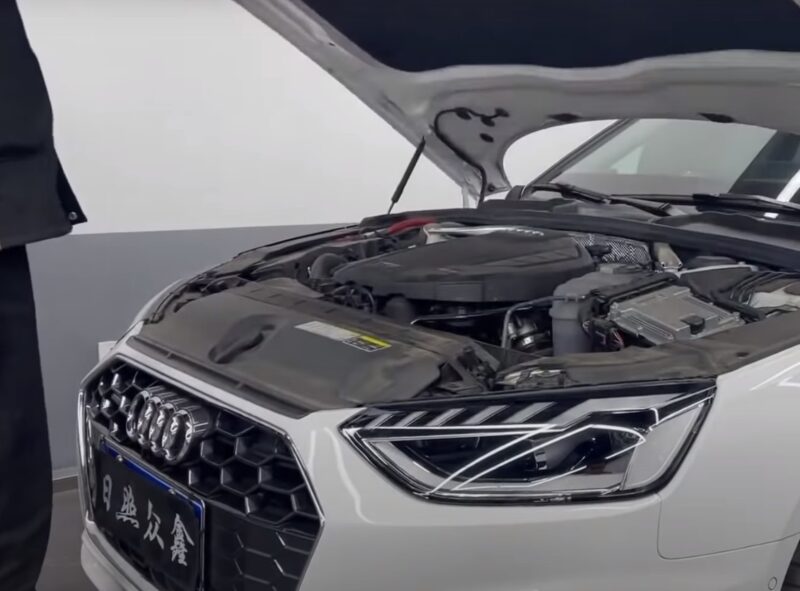There’s no denying that there’s a unique allure to owning an Audi. With their stunning design, top-notch performance, and undeniably luxurious features, Audis are an object of desire for many auto enthusiasts.
But are Audis truly worth the investment? This question often comes up among prospective buyers, given the brand’s reputation for luxury, and therefore, presumed high ownership costs. In this article, we’re going to focus on one critical aspect of owning an Audi—maintenance expenses.
By the end of this post, you’ll have a clearer understanding of the investment required to maintain an Audi and the factors that affect these costs. Whether you’re contemplating your first luxury vehicle purchase or considering adding an Audi to your collection, this article will provide you with the insights you need.
Discussing Upfront Costs
When we talk about investing in an Audi, the conversation begins with the initial purchase price. Audi vehicles, renowned for their superior quality and technology, come at a premium price. The price range varies depending on the model you opt for—whether it’s the compact A3, the midsize A6, the sporty TT, or the top-of-the-line A8.
It’s not just the sticker price that you need to consider. Other upfront costs such as insurance, taxes, and registration fees also factor into the equation. So, while the price of the car itself might be attractive, these additional costs can quickly add up, affecting the overall value proposition.
Range of Models and Value Proposition
Audi offers a diverse range of models, each with its unique set of features and corresponding price points. The A3, for instance, is an entry-level luxury sedan with a relatively lower cost of ownership. In contrast, the A8, Audi’s flagship model, offers unparalleled luxury and performance but comes with a higher price tag.
Despite the upfront cost, many Audi owners believe the value proposition extends beyond the initial investment. Factors such as driving experience, comfort, brand prestige, and technological innovation contribute to the perceived value of these vehicles. These aspects, although intangible, are important considerations for prospective buyers.
Regular Maintenance

No matter the vehicle, regular maintenance is crucial to keep it running optimally. This ensures the longevity of the car, helps maintain its resale value, and minimizes costly repairs down the line. Audis, like any other high-end vehicles, require routine maintenance to keep their high-performance engines and advanced systems in check.
The cost of maintaining an Audi isn’t negligible. This isn’t surprising, given the brand’s use of top-tier parts and cutting-edge technology. However, neglecting maintenance isn’t an option either. Doing so might lead to serious mechanical issues, costing you more in the long run.
Factors Contributing to Maintenance Costs
Several factors contribute to the maintenance costs of an Audi. These include the model and year of the vehicle, frequency of use, and even geographical location. Certain parts specific to Audi, such as brake pads and rotors, or the timing belt, can also be costlier to replace due to their superior quality.
Another factor is labor costs, which can vary greatly. Dealerships tend to charge more for their services, but they have specialized knowledge of the brand. Independent mechanics may offer lower rates, but finding one with experience in dealing with Audis is key to avoiding incorrect or inadequate repairs.
Warranty Coverage

Audi offers a 4-year/50,000-mile new vehicle limited warranty for its models. This warranty provides coverage for manufacturer defects and includes 24-hour roadside assistance. It’s important to remember that regular maintenance and wear and tear are not covered under this warranty.
Moreover, they also offered an Audi Certified Pre-owned (CPO) program for used vehicles. This program extends the original warranty and passes a comprehensive inspection. This can be a cost-effective way to own an Audi, with the peace of mind that potential issues might be covered.
Maintenance Plans
In addition to their warranty, Audi provides optional prepaid maintenance plans known as Audi Care. These packages cover routine maintenance for the first few years or up to a certain mileage, thus allowing owners to potentially save on these costs.
However, these plans have their limitations. They typically cover only routine services as laid out in the vehicle’s maintenance guide and don’t cover parts that need to be replaced due to regular wear and tear, like brake pads or tires. Therefore, it’s crucial to understand what’s included before deciding if it’s a worthwhile investment.
Data on Maintenance Costs

While exact costs can vary, data suggests that Audi maintenance costs tend to be higher than those of non-luxury brands. According to RepairPal, as of 2021, the annual maintenance cost for an Audi was around $987, which is higher than the average for luxury brands at $909.
However, when compared to some other luxury brands, Audi’s maintenance costs might be considered moderate. For example, BMW’s and Mercedes-Benz’s average annual maintenance costs were reported to be higher than Audi’s in the same period.
Specific Maintenance Tasks and Expenses
Here are some average costs for specific maintenance tasks, though prices may vary based on location and model:
- Oil change: $50 – $100
- Brake pad replacement: $150 – $300 per axle
- Tire replacement: $150 – $350 per tire
- Timing belt replacement: $500 – $1,000
It’s important to note that these costs are estimates and the actual expenses may vary.
Driving Habits and Conditions

Driving habits and conditions also play a role in determining the maintenance needs of an Audi. Aggressive driving can cause faster wear and tear, while city driving with frequent stop-and-go traffic can lead to more frequent brake replacements.
Furthermore, driving in harsh conditions—such as extreme temperatures or on rough, unpaved roads—can also increase the frequency of maintenance needs. It’s important for owners to take these factors into account when considering the cost of maintaining their Audi.
DIY vs. Professional Maintenance
Some owners opt for do-it-yourself (DIY) maintenance to save costs. Simple tasks like oil changes, air filter replacement, and basic diagnostic checks can be carried out at home with the right tools and some automotive knowledge.
However, DIY isn’t for everyone. Some tasks require specialized tools and technical knowledge, which most people lack. Furthermore, incorrect repairs or installation might cause more harm than good, leading to expensive fixes later.
When Professional Maintenance is Better

For more complex tasks—such as servicing the transmission, replacing the timing belt, or diagnosing engine problems—it’s generally advisable to seek professional help. Audi vehicles are packed with advanced technologies that require specific expertise to maintain and repair.
Additionally, having your Audi serviced by a professional can provide peace of mind. A reputable mechanic or dealership will have the necessary experience and tools to carry out maintenance and repairs correctly, ensuring the longevity of your vehicle.
Practical Tips for Reducing Maintenance Expenses
While maintenance costs are an inherent part of owning an Audi, there are ways to minimize these expenses:
- Regular Servicing: Stick to your vehicle’s maintenance schedule. Regular oil changes, filter replacements, and inspections can help prevent costly repairs down the line.
- Preventive Maintenance: Address minor issues before they become major problems. This includes things like replacing worn belts or fixing leaks as soon as they’re spotted.
- Choose Your Mechanic Wisely: Find a reputable mechanic who specializes in Audi or European cars. They’ll often charge less than a dealership but still have the necessary expertise.
Finding a Reputable Mechanic
Finding a trusted and reputable mechanic is crucial to minimizing your Audi’s maintenance costs. A good mechanic will be transparent about costs, only suggest necessary repairs, and use quality parts.
Recommendations from other Audi owners can be a great way to find a reliable mechanic. Online reviews and ratings can also provide valuable insights. Remember, the goal isn’t just to find the cheapest service, but rather, a service that offers the best value for your money.
Relationship Between Maintenance and Long-Term Reliability

Proper maintenance is key to ensuring the long-term reliability of any vehicle, and Audi is no exception. Regular servicing, along with prompt attention to any issues that arise, can keep your Audi running smoothly for many years.
A well-maintained Audi not only provides a better driving experience but can also save you from unexpected breakdowns and costly repairs. In the long run, the investment in regular maintenance can pay off by extending the lifespan of your vehicle.
Maintained Audis and Resale Value
Besides reliability, proper maintenance also significantly affects Audi’s resale value. Buyers are typically willing to pay more for a used car with a well-documented maintenance history, as it indicates the vehicle has been well cared for.
Given that they are luxury vehicles, their depreciation rate might be steeper than non-luxury cars. However, a well-maintained Audi tends to retain its value better than many other luxury brands. Therefore, regular maintenance could be seen as an investment in preserving the value of your Audi.
Conclusion
Deciding whether an Audi is worth the investment ultimately depends on individual preferences and financial circumstances. For those who value luxury, performance, and technological innovation, the costs may well be justified. For those seeking a more economical vehicle, lower-cost brands may be a better fit.
In the end, understanding the associated costs and being prepared for them is crucial when considering an Audi—or any luxury vehicle for that matter. So, if you’ve got your heart set on that shiny Audi, just make sure you’re ready for the commitment it entails.
